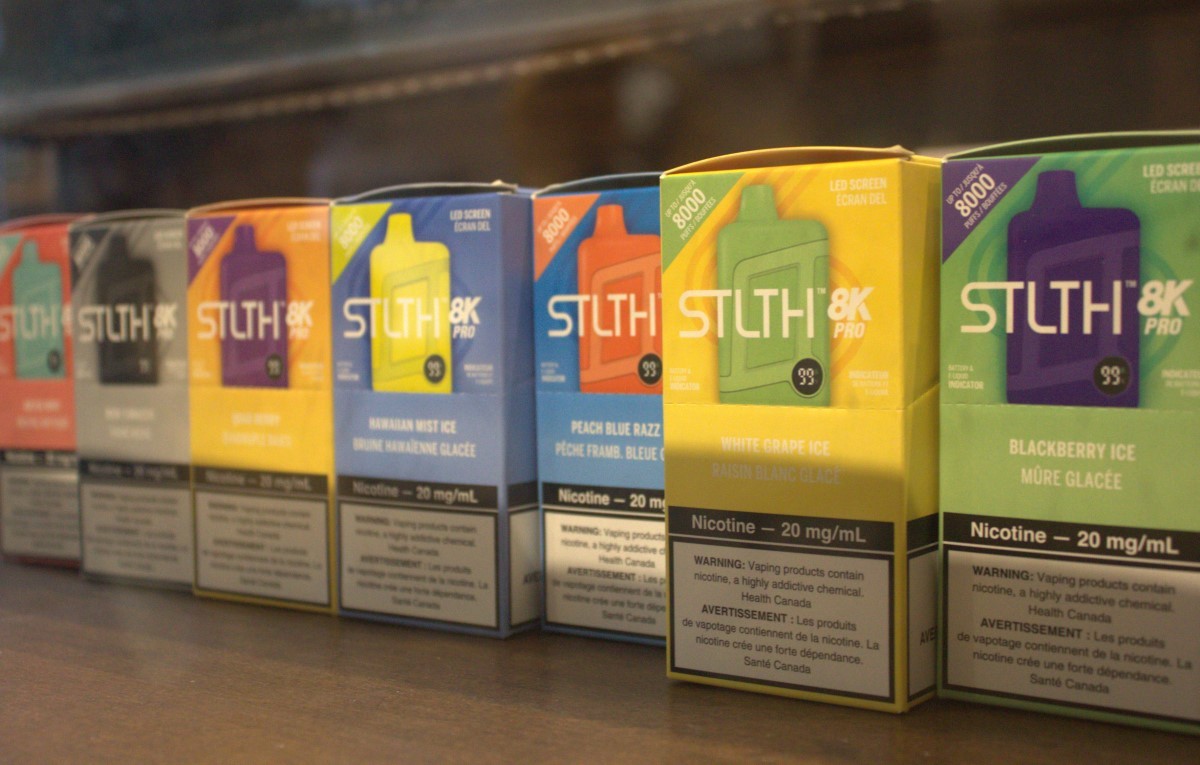Will Quebec’s vaping regulations work?
On Oct. 31, Quebec will officially ban flavoured e-cigarettes. After that point, only tobacco and unflavoured vapes will be sold. The move, intended to make nicotine products less appealing to youth and diminish vaping habits, has sparked a debate in Quebec. Is the province justified in their decision, or will the black market fill the demand once people are lacking legal means for their nicotine fix?
The government’s intentions are well-founded, but I do believe that vaping will continue to be an issue, especially amongst youth. Removing flavoured vapes will improve the situation in a superficial sense, but nicotine abuse in general will likely never go away entirely.
However, the removal of flavoured products is long overdue. While cigarettes have been required to advertise warning labels on their packaging since 2001, the packaging of e-cigarettes could not be more different. Walk into any vape shop and you’ll think it’s a candy store with their rows of brightly coloured boxes and endless list of absurd flavours. The fun fruity flavours can make a smoker forget what they’re actually doing. Being able to discreetly carry it anywhere makes vaping almost too easy, which can create a false sense of security and absent mindedness. Though vapes allegedly pose a lower risk due to the absence of tobacco, the chemicals in these products still have a negative effect on lung tissue. Furthermore, the National Institutes of Health reported that vapers are more likely to become tobacco smokers.
The marketing and accessibility of vapes has undoubtedly led to an increase in nicotine consumption in young people. According to Health Canada, young Canadians aged 15-24 are more likely to vape than those 25 and older. I’m sure most young people can attest to this, whether they themselves vape or whether they have vivid memories of their high school bathrooms being filled with Watermelon Ice or Cotton Candy clouds.
You won’t stop seeing flavoured vapes just because they’re illegal—they’re too popular. I’m sure nearly everyone knows at least one person with a secret stash and stubborn teenagers will be crossing the border into Ontario just to stock up. It seems that smoking—and now vaping—will inevitably remain mainstream. Various authorities on the issue cited similar perspectives and the CDVQ, a coalition dedicated to vaping rights in Quebec, warned that vapers would either return to tobacco or else obtain vapes through illegal (and therefore unregulated) means.
As is true in many cases of substance regulation, the government’s intentions may not have their expected effect. Changing the legal age for cannabis consumption to 21 may have had seemingly logical reasons, but it certainly did not prevent youth from sourcing pot illegally. We can hope that the issue of nicotine abuse will improve, but I wouldn’t count on it.
